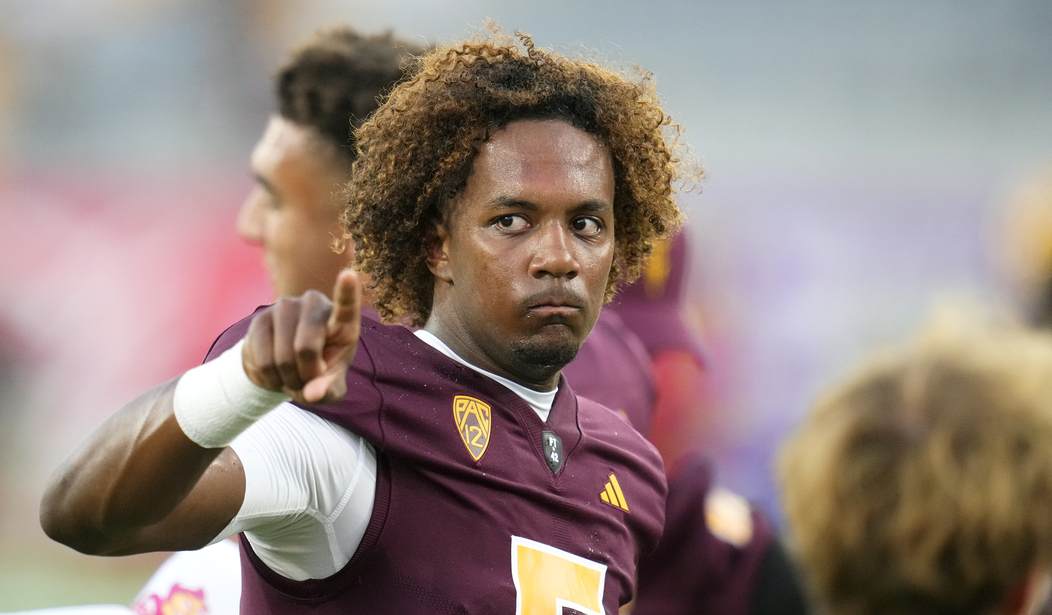When name, image, and likeness (NIL) became a factor in college athletics, it became a powerful recruiting tool. Promises of lucrative endorsement deals and collectives offering big money can draw the attention of recruits.
But what happens when big NIL promises don’t pan out? Ask quarterback Jaden Rashada.
In 2022, as Rashada was getting ready to make his college decision, a booster from the University of Miami offered him an astonishing $9.5 million in NIL money. The Gator Collective, an NIL collective aligned with the University of Florida, countered with a whopping $13.85 in NIL deals over four years at the school. It was the largest known offer to a college prospect ever, and Rashada announced his commitment.
God is great, please respect my decision! IM HOME 🏡🐊. #GOGATORS🐊 #COMMITTED @coach_bnapier @CoachRyanO @kearycolbert pic.twitter.com/hZzav80fp5
— Jaden Rashada 5️⃣ (@jadenrashada) November 11, 2022
The contract included an initial payment of $500,000, due on Dec. 5, 2022, before Rashada could enroll at Florida. But things changed. The Athletic reports:
The Gator Collective had reneged on its deal in early December, two days after the initial payment was due, and on Jan. 17 the quarterback was granted a release from his letter of intent. Rashada, once seemingly poised to benefit greatly from a perceived bidding war between Miami and Florida boosters, was suddenly without a school and without NIL dollars.
Rashada signed with Arizona State University, where his dad played football in the ‘90s, instead, and in early 2024, he transferred to the University of Georgia. This week, Rashada filed suit against Florida’s head coach, a former staffer, and a booster. The Athletic reports:
The lawsuit, filed in the U.S. District Court for the Northern District of Florida, alleges six counts of fraud, negligence, and tortious interference against Napier; a former football staff member, Marcus Castro-Walker, who served as the football program’s director of NIL; Florida mega-booster Hugh Hathcock; and an automotive business of Hathcock’s. Florida fired Castro-Walker on Feb. 1, shortly after The Athletic reported he was one of the subjects of a since-paused NCAA investigation into Rashada’s recruitment.
ESPN adds more context:
Rashada is the first known college athlete to sue his coach or a booster due to a dispute of a name, image and likeness (NIL) deal. His case, filed in the U.S. District Court in the Northern District of Florida, comes during a tumultuous time for the relatively new NIL market for college athletes. A mixture of state laws and evolving NCAA guidance dictates the roles that coaches, schools and donor groups known as collectives all play in facilitating the deals athletes can now strike to make money.
"As the first scholar-athlete to take a stand against such egregious behavior by adults who should know better, Jaden seeks to hold Defendants accountable for their actions and to expose the unchecked abuse of power that they shamelessly wielded,” the lawsuit states. The suit asks for damages “exceed(ing) the sum or value of $10 million,” roughly the amount of money he turned down to sign with Florida.
Related: Here's More Proof That NIL and the Transfer Portal Are Getting Way Out of Hand
The suit accuses Hathcock of going back on promises to set Rashada up financially. Sources told ESPN that the NIL money available to Rashada went down by half after he signed with the Gators. Napier and Castro-Walker don’t come off well in the suit, either.
It’s too early to tell how the suit will play out, but no matter what happens, I’m certain that there will be ripples throughout college athletics. The NCAA launched an investigation into Rashada’s recruitment, but it backed off. It’s tough to say what that means for Rashada’s case.
“Jaden’s miserable experience reveals in stark and dramatic detail what can happen to young student-athletes when wealthy, win-at-all-cost alumni insert themselves into college football’s recruiting process,” the lawsuit states in its introduction. For his part, Rashada may have learned his lesson; he claims that neither his commitment to Arizona State nor his transfer to Georgia involved NIL promises.
Here’s hoping more student-athletes will think twice before falling for the promises of overeager boosters. The funny thing about all of this is that NIL was supposed to fix the problems with fast-talking boosters that could get the schools in trouble.
Read the lawsuit below:
Rashada v. Hathcock by PJ Media on Scribd










Join the conversation as a VIP Member